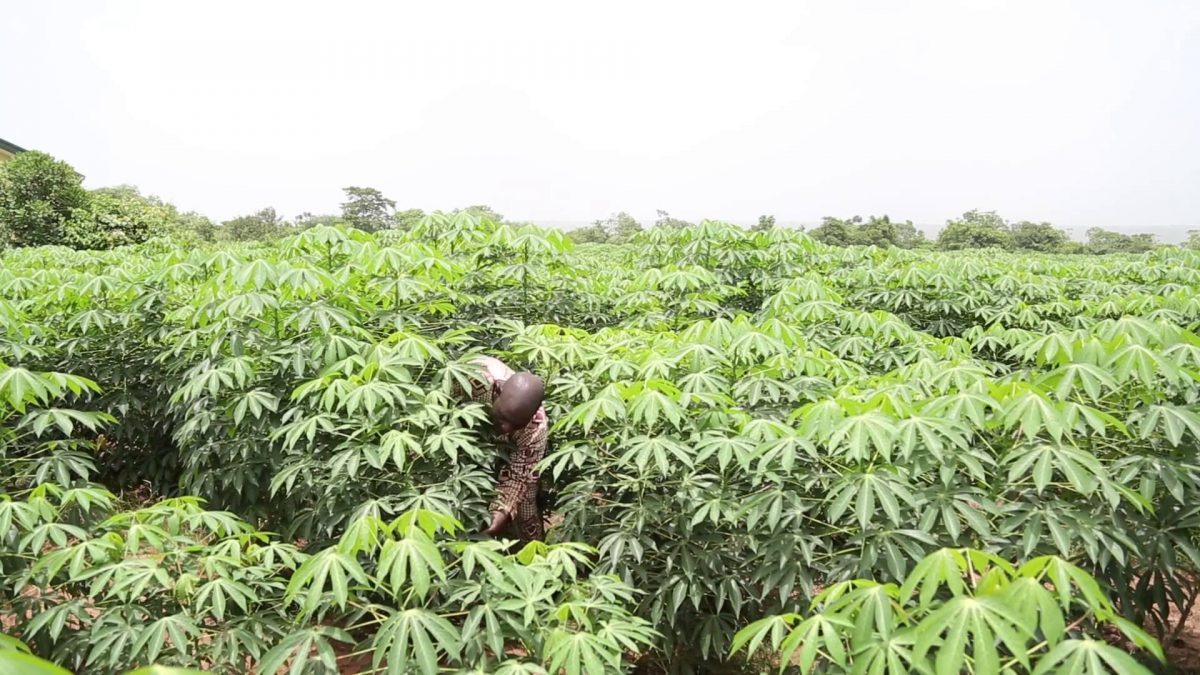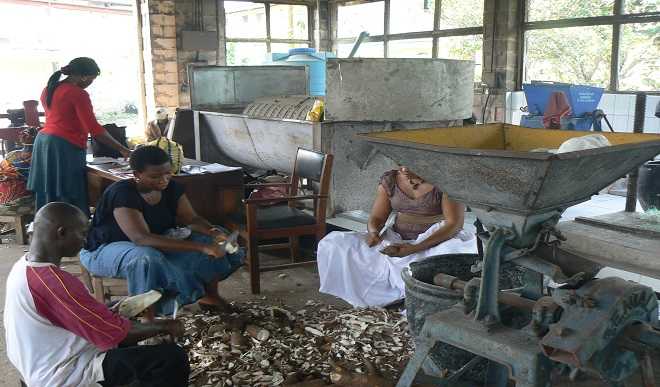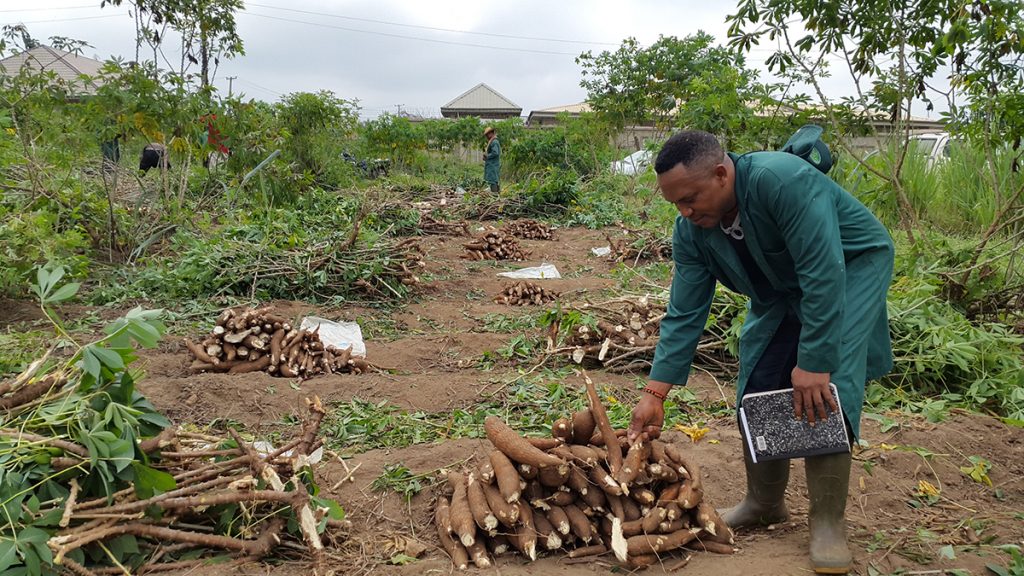HOW TO START A CASSAVA PROCESSING BUSINESS IN NIGERIA
How to Start A Cassava Processing Business in Nigeria
With the ever increasing demand for cassava both in the local and international markets, it is easy to see why so many entrepreneurs are contemplating this very viable business venture.
Do you want to start up a cassava processing business in Nigeria?
This article covers the basic information you need at your fingertips to immediately start up this business with ease. Let’s go through it together.
 How to Start A Cassava Processing Business
How to Start A Cassava Processing Business
What is the profit potential of cassava business?
It is a proven fact that cassava business is one of the most profitable businesses and also easiest to start, as you can start up with little money.
Here are three ways you can make profits from the business: according to the comprehensive guide by Michael R.O
- Normal/common breed: This will give a yield of about 10 tonnes per hectare. But you shouldn’t go for that. As most farmers don’t go for this type anymore since there are other varieties that bring high yield within 11-13 months. Cassava can stay up to two years without you harvesting it.
- Yield/hectare: 20-25 tonnes. Rough estimated turnover: 20×N15,000= N300,000
- There are now new varieties of cassava developed in Nigeria through a collaborative effort between (IITA and NRCRI) and all these varieties perform well in different cassava production regions of Nigeria with very high yield, high dry matter and good disease resistance. The potential maximum yield of the two varieties is between 49 and 53 tonnes per hectare( under an ideal situation). Using the new cassava variety: Realistic expected yield is about 20-25 tonnes. 25×N25,000= N625,000
With your expected turnover of about N.6m, all you have to do is to spend more time and money in cultivating your farmland. And on the plus side; the running costs is usually not that high.
 How to Start A Cassava Processing Business
How to Start A Cassava Processing Business
Starting up your cassava processing business
Cassava can be processed into a number of products such as starch, chips, flour, ethanol and glucose syrup. These products are all in high demand locally and also have significant export possibilities. All of these are money making ventures that yield quick. With value added to the same produce you sell at N100,000-N120,000 per tonne of processed cassava. So for an average of 30 tonnes you can make N120,000×30=N3.6m
And there are equipments that can produce up to 25 tonnes of flour, garri, fufu, chips per day!
How to process cassava into flour used for confectionery
Cassava flour is not elubo lafun the staple food of egbas in Ogun state. The difference between them is that the cassava for processing flour should be harvested and processed in the same day. With the flour, there should be no fermentation of the cassava at all. But the cassava processing to elubo must be fermented for at least three days.
- Harvest mature cassava from the farm and have it loaded to the processing shed immediately. If the quantity of cassava harvested can not be carried on the same day for logistics reasons, then do not detach the cassava from the stems and leaves until the vehicle to carry it is available. This will disable fermentation from occurring. But care must be taken not to bruise the cassava when uprooting it.
- Peel the cassava and wash in clean water
- Grind the cassava with grating machine
- Press the cassava with screw Jack or hydraulic jack. The moisture level of the cassava should be reduced to below 20%. And the entire duration from harvesting to pressing should be all under 24 hours
- Dry the cassava to moisture level of below 14%. The drier the product, the more longer the storage life. The moisture level is the most important quality that will be examined by buyers.
- Package the products into 50g sacks and have distributed to different sales channels.
Acquiring cassava processing equipments
Cassava processing gear don’t come cheap. And yet, without them you simply cannot run a successful cassava processing business.
Here is a list of necessary equipments for this business:
- A hammer mill made out of stainless steel
- A granulator made out of stainless steel of about 7.5 HP electric motor
- Dewatering mechanical presses
- Fermentation racks
- Garri roasting pots made from stainless steel with 2HP electric motor, exhaust pipes, stainless steel paddles, and fibreglass insulation
There are a whole lot of other sophisticated equipments available for cassava processing. It’s all up to. Put into consideration how much budget spare to purchase quality equipment. A regular cassava processing plant operates using one hammer mill, a granulator, two fermentation racks, two dewatering presses and two roasting pots. Investing in cassava processing equipments could certainly cost you huge sums of money, but the business is very profitable as against the capital requirements.
 How to Start A Cassava Processing Business
How to Start A Cassava Processing Business
Cost of cassava processing equipments
Here is a breakdown of the cost of some cassava processing equipments in Nigeria.
- Stainless steel hammer mill with 1tonne/hour capacity costs around N650,000
- Fermentation racks, press jacks, all cost about N450,000
- Dewatering racks with mechanical press which goes for about N500,000
- Stainless steel granulator with 7.5 HP electric motor which has the capacity of processing about 1 tonne/hour goes for N500,000
- Stainless steel garri roasting pot with 2 HP electric motor, fiberglass insulation, exhaust pipes, and stainless steel paddles. It has the capacity to produce about 2 tonnes per day which costs around N190,000
Was this helpful?
Related